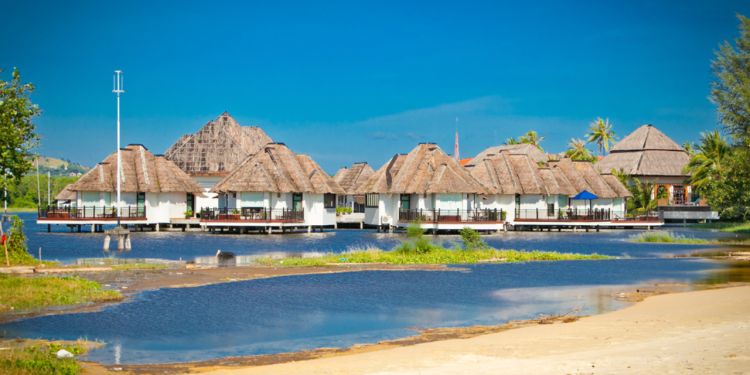
If you're looking to buy a property in Cambodia — either for your personal use or as an investment — you'll be pleased to know that it is possible, but there are some restrictions.
Foreigners are allowed to own certain properties in Cambodia, but their rights are restricted to buildings that have obtained a strata title. A strata title is a possession right that allows a property to be co-owned by both Cambodians and foreigners by being divided into multiple properties that can be sold individually. To be granted this co-ownership title, a property must meet certain criteria, including being built after 2009 and being further than 30km from any border. Foreigners can only own up to 70% of the total area of all units in a co-owned building, and they can't purchase any units on the ground floor. This type of title is generally granted to new condominiums (a multi-level building with several units, as well as common areas ' such as a pool or gym) and is often referred to as the 'condominium law'.
Foreigners aren't officially allowed to buy land (or landed property) in Cambodia in their own name, but there are four ways to get around this if you wish to use or control land, and are willing to accept a level of risk.
You could buy land through a Cambodian company (a Cambodian needs to own 51% of the company shares).
You could set up a leasehold agreement (you can lease land for between 15 and 50 years, with a possibility of extension).
You could become a Cambodian citizen after living in the country for at least 7 years and becoming fluent in Khmer, or by making a big donation (the Prime Minister will need to approve any application).
You could buy land through a Cambodian nominee (the landowner will lease the land to you and you will sign a trust agreement giving you the rights to control it).
However, to minimise any risks and hurdles, the easiest way for a foreigner to purchase a property in Cambodia is to simply buy a unit in a condominium. The benefits of buying a condo are that these are often well maintained, quite simple to sell and rent out, and tend to offer good security.
Property prices are relatively low in Cambodia compared to other countries in the region, and it's not uncommon to yield between US$1,200 and US$1,500 in rental income each month. This means you stand to generate a decent cash flow if you're buying your property as an investment.
Requirements
Do be aware that it is not easy to get a loan in Cambodia as a foreigner and, as property prices are still relatively cheap, it's best to buy your property in cash if you can afford it.
When you have found a property that you wish to purchase, you'll first need to pay a 10% deposit. As a non-resident foreigner in Cambodia, you'll then be required to pay transfer tax of 4% of the property value when you make your purchase (the property value will be determined by an official from the cadastral office), property tax of 0.1% that is paid on an annual basis, annual rental income tax of 14%, and capital gains tax of 20% if you sell the property. You will also need to provide a valid passport and visa copies.
As classifications can be confusing and misconceptions abound, it's worth hiring professionals, such as a reputable estate agent and solicitor, to advise you through the process of buying a property in Cambodia.
Process
As a foreigner, you can be granted your purchase of a unit in a building with a strata title by the Ministry of Land Management, Urban Planning and Construction (MLMUPC), and you can expect the transfer process to take around 12 weeks.
Before you make your purchase, it is advisable to conduct a title search if possible (this will confirm who holds the title to the property, and reveal registered mortgages or any issues), and to contact the local commune council to request more information about the property. If you buy a property from a company instead of a private owner, be sure to get a copy of the ID and certifications of the person acting on the company's behalf.
Once you're happy to proceed, you will need to then pay the 10% deposit, and visit the cadastral office with the seller, who should bring his original title deed. Once you have received all the documents from the cadastral office (this may take up to a month) and have then paid a visit to the General Department of Taxation, which will handle the payment of the 4% transfer tax (be sure to keep the receipt), you and the seller should then return to the cadastral office to sign the purchase agreement.
After about five working days, the cadastral office will send the final documents to the municipal office or the MLMUPC, which should issue the title deeds in your name within three weeks.
Useful links:
We do our best to provide accurate and up to date information. However, if you have noticed any inaccuracies in this article, please let us know in the comments section below.







Comments